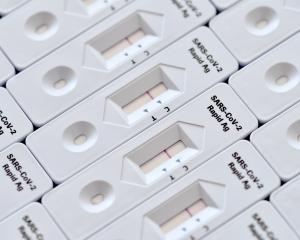The Covid-19 lockdown resulted in a dramatic shift in how doctors treated patients, and a potentially worrying drop-off in specialist referrals, new Dunedin research has found.
General practice and medical centres were among the first places to restrict entry due to Covid-19, and clinics maintained strict standards to prevent spread of the diseases.
Researchers have studied the patients at an unnamed Dunedin medical centre during that period, and compared appointments and outcomes from the previous year.
Published today in the New Zealand Medical Journal, the research found that in 2019, 30% of patient contacts were virtual and 70% were face-to-face contacts, but in the immediate Covid-19 period 79% of patient contacts were virtual and 21% were face-to-face.
"The number of phone consultations increased five-fold from 57 in 2019 to 255 in 2020, and phoned or electronic requests for repeat prescriptions nearly doubled from 146 in 2019 to 269 in 2020."
In 2019, 17 patients were referred to other health services but in 2020 no referrals were made.
Likewise, laboratory and radiology investigations fell dramatically, from 61 in 2019 to just one in 2020.
"Given this large reduction in investigations ordered despite a similar number of patient contacts in 2019, it would be worth exploring if any negative (or potentially positive) impacts were observed in patient outcomes," study authors Carol Atmore (GP, University of Otago senior lecturer) and Tim Stokes (GP) said.
The study was only of one general practice, but had wider implications as it had shown the ability of doctors and patients to rapidly adjust to new methods of consultation and treatment.
"It will be important to monitor the impact of emerging models of mixed face-to-face and virtual patient contact on patients with high health needs to ensure they have acceptable, equitable access and improved health outcomes."
The proportion of patients dealing with the general practice and the nature of their complaints were comparable between the two years, but test programmes such as cervical screening and minor surgery and wound care were not able to be provided virtually.
The study findings suggested no obvious groups of patients were unable to access services, although patients with multiple health issues and mental health problems might have had less face-to-face contact in 2020 compared with other patients.
"A recent survey of patient experience with virtual consultations during Covid-19 was generally positive and respondents wanted them to continue to be available.
"These areas warrant further investigation, including the acceptability of virtual consultations to patients."
Advertisement













